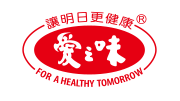Menu
Stakeholder Area
Contact
Employee Relations - Ms. Tsai from HR Department
TEL:(05)2211521 Ext. 127
Email:YUEHCHU@mail.agv.com.tw
Stock Affairs Office - Ms. Tsai
TEL:(05)2211521 Ext. 127
Email:YUEHCHU@mail.agv.com.tw
Investor Relations - Ms. Chang from Accounting Department
TEL:(05)2211521 Ext. 212
Email:J77888@mail.agv.com.tw
Customer Service Center - Ms. Chang from Customer Service Center
TEL:(05)2211521 Ext. 167
Email:GREENBAR@mail.agv.com.tw

